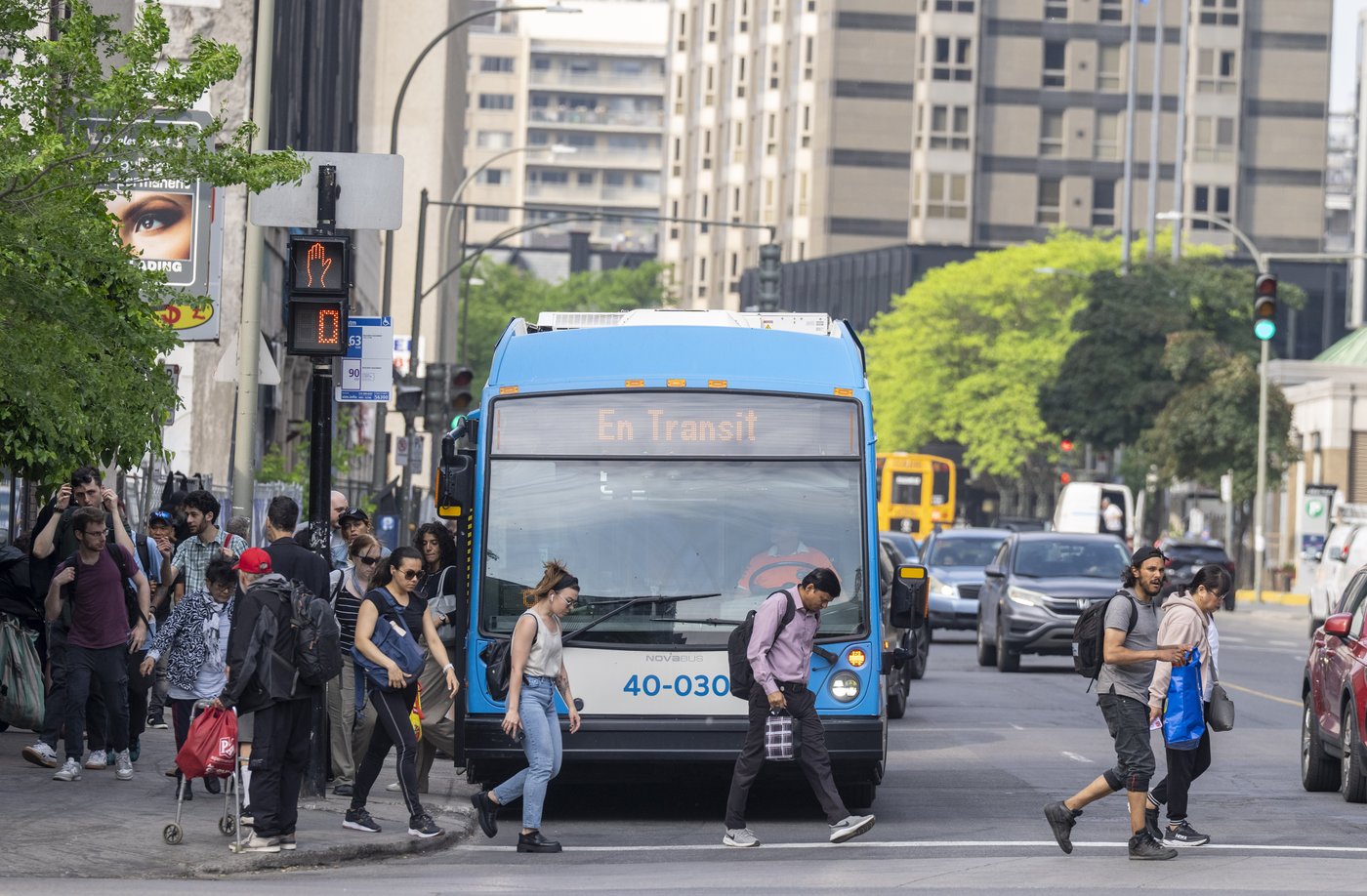OTTAWA — A transit advocacy group is warning new U.S. tariffs on buses coming into effect this weekend are going to upend the budgets of cities across North America — and eventually residents and riders.
Property taxes, transit fares, parking fees and maybe even congestion charges could be in play.
U.S. President Donald Trump’s tariffs package on heavy and medium-sized trucks — which he announced earlier this month, citing national security concerns — includes a 10 per cent duty on buses.
Like the Canadian auto sector, the bus manufacturing industry is highly integrated between the two countries, with parts crossing the border multiple times.
“If every mayor in North America is not peeing themselves right now, they really should be,” said Josipa Petrunic, CEO of the Canadian Urban Transit Research & Innovation Consortium (CUTRIC).
Although it will take a while for the costs to filter down to Canadians, she said, cities desperate to source enough buses for their fleets will find themselves able to purchase even fewer than they’d hoped as the prices of vehicles and parts rise, and as production runs shrink.
There’s no wiggle room, no exceptions for compliance with trade agreements or Buy America policies, and no carve-outs, as there are with the new truck tariffs.
“Overnight, mayors just woke up and every bus that they have in the pipeline — even if they’ve already signed the contract — just got some percentage more expensive, up to 10 per cent,” Petrunic said.
She said a hybrid bus costs roughly $900,000, while an electric bus can easily run to $1.3 million.
Petrunic is urging the government not to let the bus manufacturing industry get sidelined during trade negotiations, and to take steps to help the industry.
Rebecca Bligh, president of the Federation of Canadian Municipalities, said she is “deeply concerned” about the upcoming bus tariffs. She warned they will “directly affect Canadians by driving up the cost of public transit” and “threaten thousands” of manufacturing jobs.
“Higher costs mean fewer new buses, slower progress toward cleaner fleets, and the risk of service cuts or fare hikes,” she said in a statement to The Canadian Press.
“For communities already facing rising infrastructure costs, this adds pressure at a time when reliable, accessible transit is more important than ever.”
Canada’s bus manufacturing industry employs upward of 25,000 people and has already been hit by Trump’s steel and aluminum tariffs.
There are three major manufacturers of buses in North America: New Flyer — which operates plants in Winnipeg and owns a major share of the market — Nova Bus in Saint-Eustache, Que. and Gillig, which is located in San Francisco’s East Bay region in California.
“NFI is carefully reviewing the details of the recently announced new tariffs on buses and motor coaches entering the U.S. market and assessing its implications,” said a statement sent by Melissa Schnee of New Flyer, which is owned by NFI Group.
This report by The Canadian Press was first published Oct. 30, 2025.
Kyle Duggan, The Canadian Press











